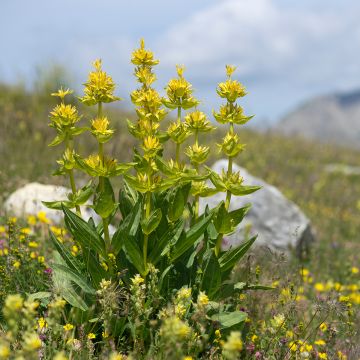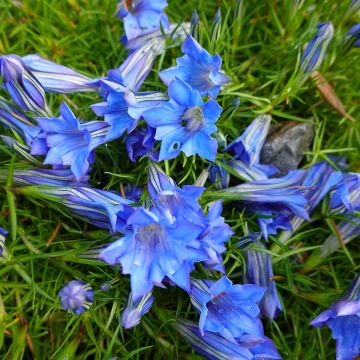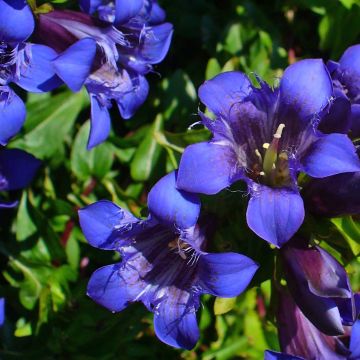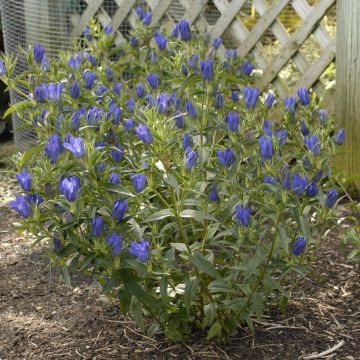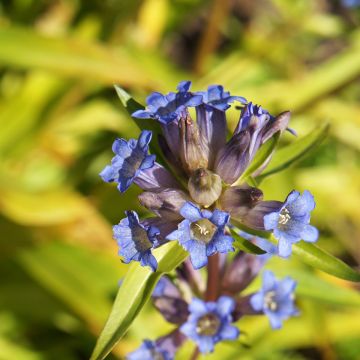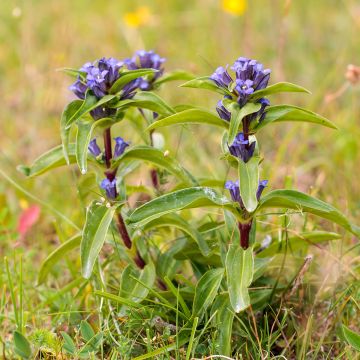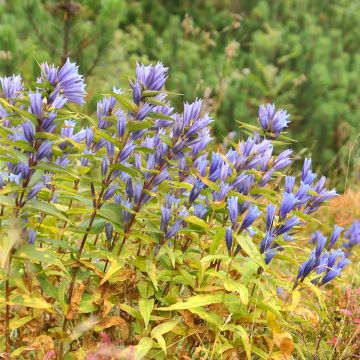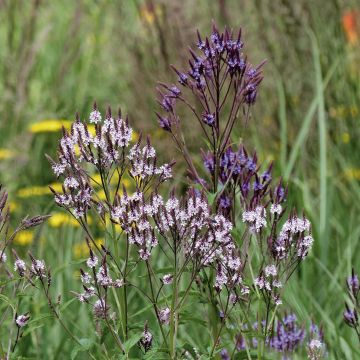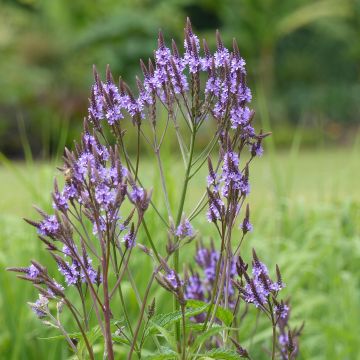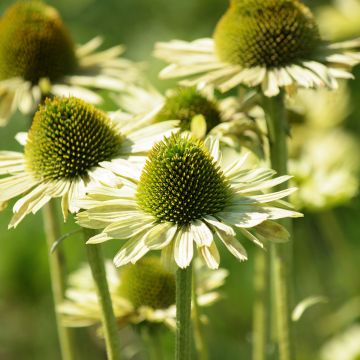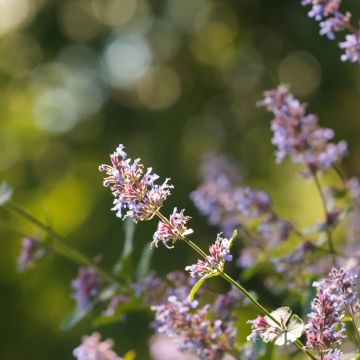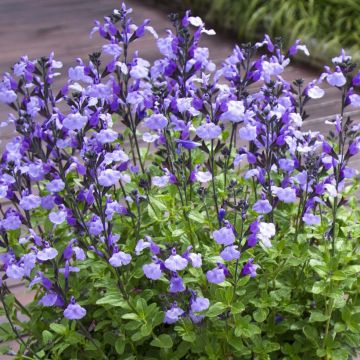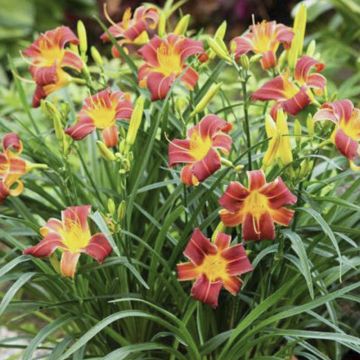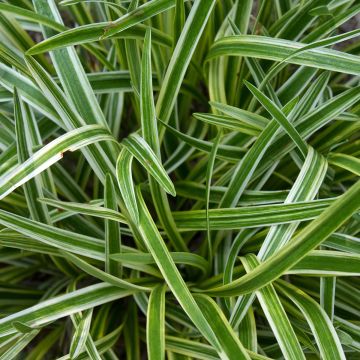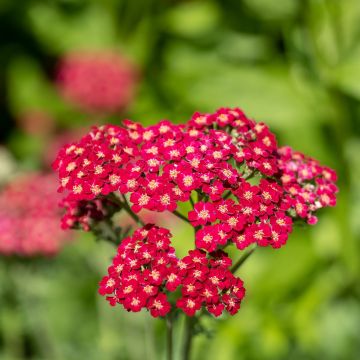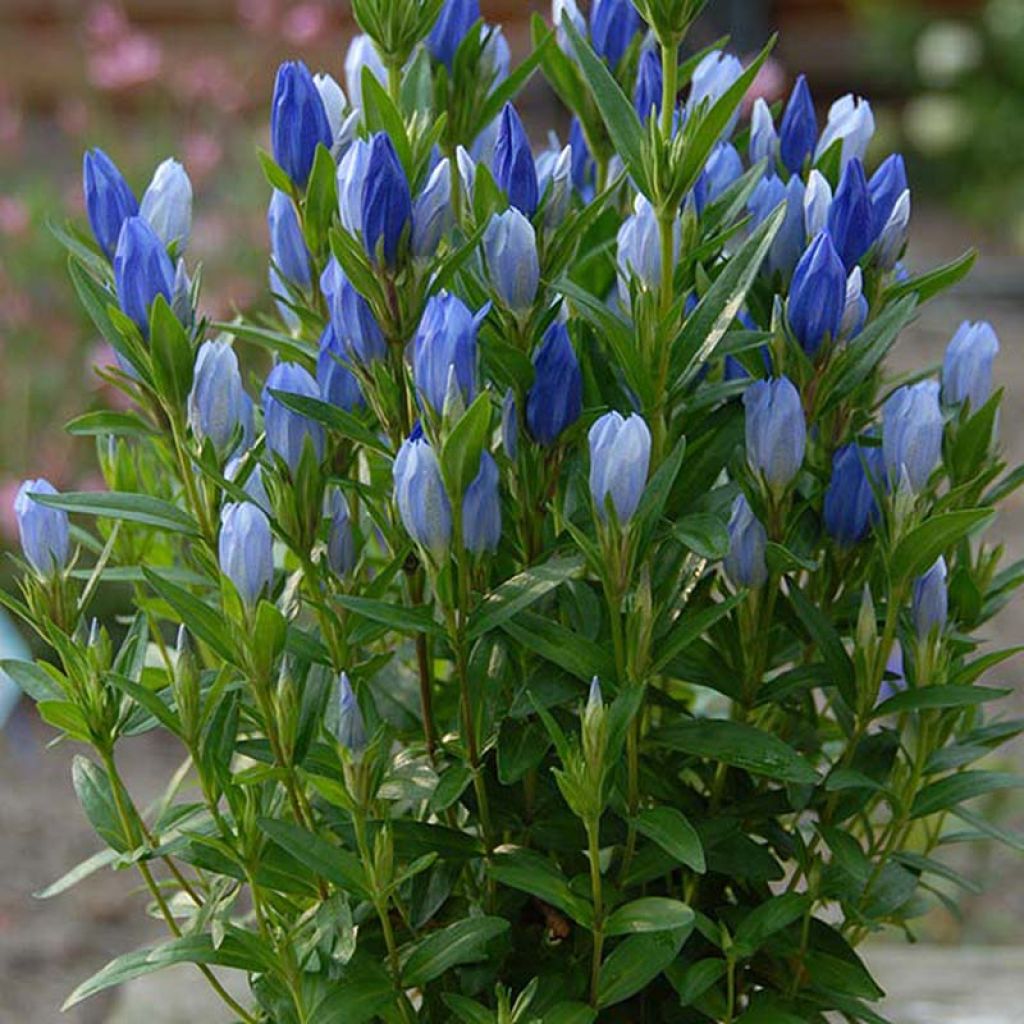

Gentiana makinoi Blue Star
Gentiana makinoi Blue Star
Gentiana makinoi Blue Star ®
Despite the complete disregard of the instructions by the delivery person regarding the handling of the package, suggesting an inability to read the instructions, it should be noted that the plant arrived severely crushed by the four others ordered. However, its robustness and quality are undeniable, and it is currently in the recovery phase.
Marta, 11/07/2024
Special offer!
Receive a €20 voucher for any order over €90 (excluding delivery costs, credit notes, and plastic-free options)!
1- Add your favorite plants to your cart.
2- Once you have reached €90, confirm your order (you can even choose the delivery date!).
3- As soon as your order is shipped, you will receive an email containing your voucher code, valid for 3 months (90 days).
Your voucher is unique and can only be used once, for any order with a minimum value of €20, excluding delivery costs.
Can be combined with other current offers, non-divisible and non-refundable.
Home or relay delivery (depending on size and destination)
Schedule delivery date,
and select date in basket
This plant carries a 12 months recovery warranty
More information
We guarantee the quality of our plants for a full growing cycle, and will replace at our expense any plant that fails to recover under normal climatic and planting conditions.

Would this plant suit my garden?
Set up your Plantfit profile →
Description
Gentiana makinoi 'Blue Star' is a new variety of gentian that stands out for the duration of its flowering: this small plant produces very pretty flowers in summer, for 8 to 12 weeks, similar to thin tulips, in two shades of bright blue. Derived from a Japanese high-altitude species, this hardy perennial is not the easiest to grow in the garden, but it is not short of charm. It will thrive in a cool rockery in the sun, in favourable climates. It also allows for beautiful potted flowers to decorate the terrace or balcony.
The 'Blue Star' Gentian is a horticultural creation derived from Gentiana makinoi, endemic to the high-altitude mountains of Honshu Island in Japan. In nature, it is most often found in cool and humid places. This variety is a natural mutation of the 'Marsha' Gentiana makinoi, discovered in the Netherlands in 2010. It belongs to the Gentianaceae family. It is a perennial herbaceous plant with a thin fibrous rhizome, with relatively slow growth. From spring onwards, it forms a clump of leafy stems about 25 cm (10in) in all directions. The branched stems bear narrowly ovate leaves, 4 cm (2in) long, slightly shiny and leathery, with pointed tips, a somewhat glaucous green colour. From June-July to August-September numerous small flowers, 4.3 cm (2in) long, continuously bloom on short stems, either solitary or in pairs, tubular and erect towards the sky. They bloom in the axils of the leaves or at the end of the stems. They exude a light fragrance that is somewhat reminiscent of cinnamon. Each flower lasts about ten days before wilting. The corolla consists of 5 petals in deep ultramarine blue or light lavender blue, depending on the ripeness of the flower, with both colours coexisting on the plant. This gentian does not produce fruits, which partly explains its floriferous nature. The vegetation disappears in winter.
Like most alpine plants, the Blue Star gentian will be easy to grow as long as the appropriate growing conditions are provided. This mountain plant does not appreciate hot climates or more or less dry, chalky and/or heavy and compact soils. When planted in the ground, it should ideally be placed in a soil rich in compost that remains moist, on a wall, in a rockery, on a slope, at the edge of flowerbeds, or in a trough, in a mountain garden. It prefers acidic rocky spaces that are sunny but not too hot, or semi-shaded, where it can establish deep roots. This Gentian can be associated, in a flowerbed or rockery, with Snowdrops, Botanical Tulips, crocuses, Lewisias, saxifrages, corydalis or heucheras. It can be easily grown in pots, following the same growing conditions.
The term Gentiana refers to Gentius, king of Illyria (present-day Albania) in the 2nd century BC, who, according to Pliny the Elder, discovered the medicinal and healing properties of the yellow Gentian root.
Report an error about the product description
Gentiana makinoi Blue Star in pictures
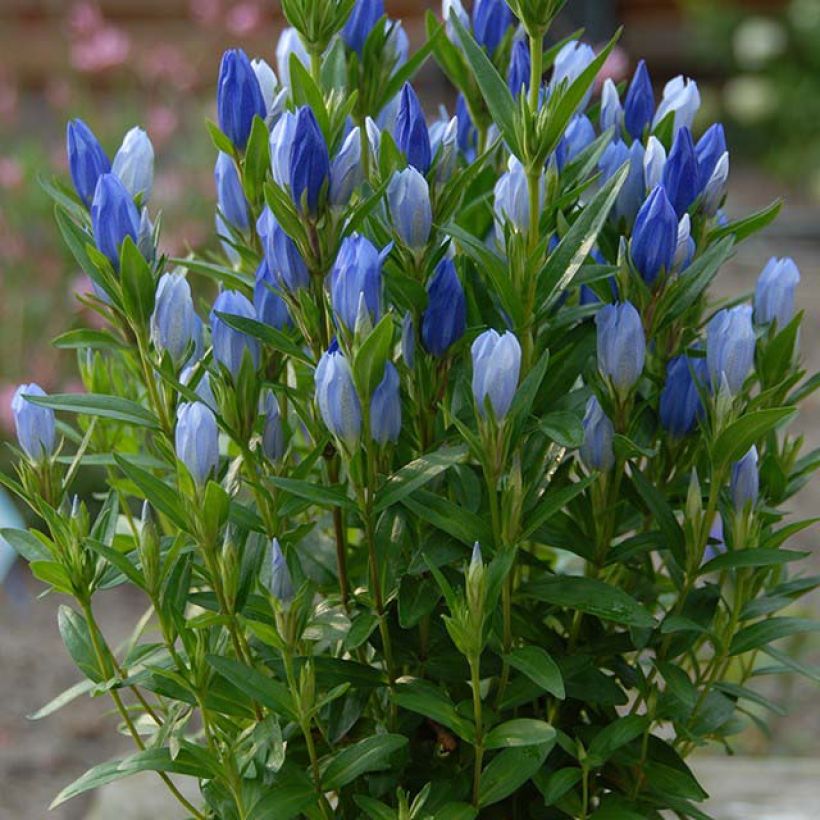

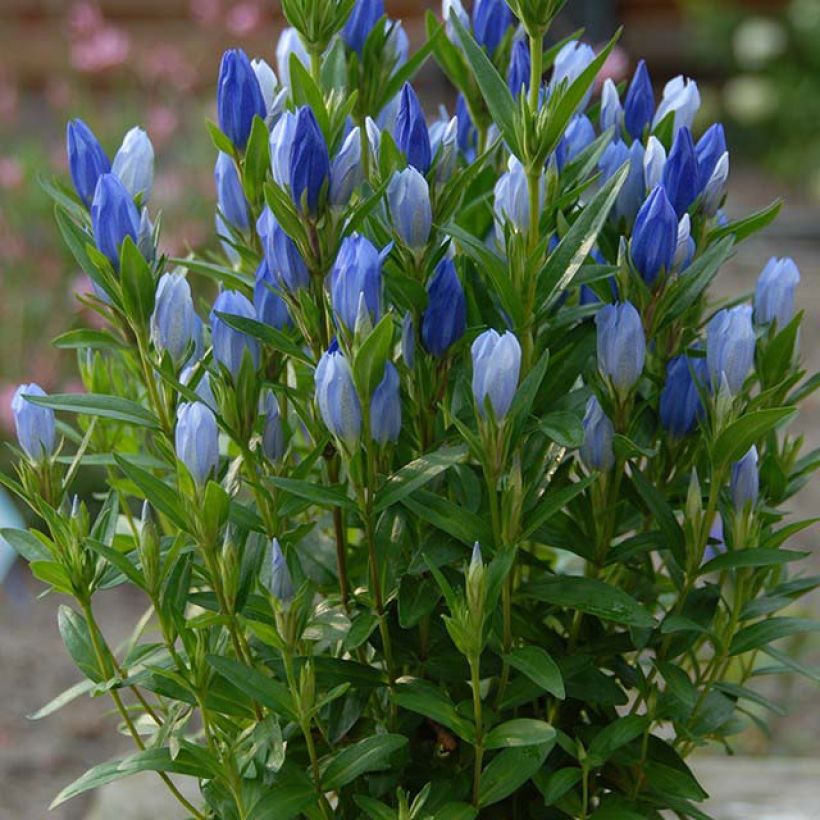

Flowering
Foliage
Plant habit
Botanical data
Gentiana
makinoi
Blue Star ®
Gentianaceae
Cultivar or hybrid
Other Gentian
View all →Planting and care
The Blue Star Gentian should be planted in spring or autumn. At planting, between September and March, it will be necessary to install it in soil enriched with compost, non-limestone gravel, and a humus-rich, acidic medium such as leaf compost. The soil should be loose and well-drained, but moist throughout the year. This plant is perfectly hardy and does not appreciate hot climates and scorching summers; it thrives in regions where summers are cool and wet. In spring a supply of fertiliser in the form of hoof and horn or well-rotted manure will be welcome. It is suitable for a partially shaded or sunny site that is not scorching. In a cold greenhouse, this Gentian should be planted in a 10 to 20 cm (4 to 8in) pot, depending on the size of the plant, and in a mixture of compost and non-calcereous gravel. Repot every year, without disturbing the main root of the plant. Water regularly, preferably with non-calcereous water.
Planting period
Intended location
Care
-
, onOrder confirmed
Reply from on Promesse de fleurs
Similar products
Haven't found what you were looking for?
Hardiness is the lowest winter temperature a plant can endure without suffering serious damage or even dying. However, hardiness is affected by location (a sheltered area, such as a patio), protection (winter cover) and soil type (hardiness is improved by well-drained soil).

Photo Sharing Terms & Conditions
In order to encourage gardeners to interact and share their experiences, Promesse de fleurs offers various media enabling content to be uploaded onto its Site - in particular via the ‘Photo sharing’ module.
The User agrees to refrain from:
- Posting any content that is illegal, prejudicial, insulting, racist, inciteful to hatred, revisionist, contrary to public decency, that infringes on privacy or on the privacy rights of third parties, in particular the publicity rights of persons and goods, intellectual property rights, or the right to privacy.
- Submitting content on behalf of a third party;
- Impersonate the identity of a third party and/or publish any personal information about a third party;
In general, the User undertakes to refrain from any unethical behaviour.
All Content (in particular text, comments, files, images, photos, videos, creative works, etc.), which may be subject to property or intellectual property rights, image or other private rights, shall remain the property of the User, subject to the limited rights granted by the terms of the licence granted by Promesse de fleurs as stated below. Users are at liberty to publish or not to publish such Content on the Site, notably via the ‘Photo Sharing’ facility, and accept that this Content shall be made public and freely accessible, notably on the Internet.
Users further acknowledge, undertake to have ,and guarantee that they hold all necessary rights and permissions to publish such material on the Site, in particular with regard to the legislation in force pertaining to any privacy, property, intellectual property, image, or contractual rights, or rights of any other nature. By publishing such Content on the Site, Users acknowledge accepting full liability as publishers of the Content within the meaning of the law, and grant Promesse de fleurs, free of charge, an inclusive, worldwide licence for the said Content for the entire duration of its publication, including all reproduction, representation, up/downloading, displaying, performing, transmission, and storage rights.
Users also grant permission for their name to be linked to the Content and accept that this link may not always be made available.
By engaging in posting material, Users consent to their Content becoming automatically accessible on the Internet, in particular on other sites and/or blogs and/or web pages of the Promesse de fleurs site, including in particular social pages and the Promesse de fleurs catalogue.
Users may secure the removal of entrusted content free of charge by issuing a simple request via our contact form.
The flowering period indicated on our website applies to countries and regions located in USDA zone 8 (France, the United Kingdom, Ireland, the Netherlands, etc.)
It will vary according to where you live:
- In zones 9 to 10 (Italy, Spain, Greece, etc.), flowering will occur about 2 to 4 weeks earlier.
- In zones 6 to 7 (Germany, Poland, Slovenia, and lower mountainous regions), flowering will be delayed by 2 to 3 weeks.
- In zone 5 (Central Europe, Scandinavia), blooming will be delayed by 3 to 5 weeks.
In temperate climates, pruning of spring-flowering shrubs (forsythia, spireas, etc.) should be done just after flowering.
Pruning of summer-flowering shrubs (Indian Lilac, Perovskia, etc.) can be done in winter or spring.
In cold regions as well as with frost-sensitive plants, avoid pruning too early when severe frosts may still occur.
The planting period indicated on our website applies to countries and regions located in USDA zone 8 (France, United Kingdom, Ireland, Netherlands).
It will vary according to where you live:
- In Mediterranean zones (Marseille, Madrid, Milan, etc.), autumn and winter are the best planting periods.
- In continental zones (Strasbourg, Munich, Vienna, etc.), delay planting by 2 to 3 weeks in spring and bring it forward by 2 to 4 weeks in autumn.
- In mountainous regions (the Alps, Pyrenees, Carpathians, etc.), it is best to plant in late spring (May-June) or late summer (August-September).
The harvesting period indicated on our website applies to countries and regions in USDA zone 8 (France, England, Ireland, the Netherlands).
In colder areas (Scandinavia, Poland, Austria...) fruit and vegetable harvests are likely to be delayed by 3-4 weeks.
In warmer areas (Italy, Spain, Greece, etc.), harvesting will probably take place earlier, depending on weather conditions.
The sowing periods indicated on our website apply to countries and regions within USDA Zone 8 (France, UK, Ireland, Netherlands).
In colder areas (Scandinavia, Poland, Austria...), delay any outdoor sowing by 3-4 weeks, or sow under glass.
In warmer climes (Italy, Spain, Greece, etc.), bring outdoor sowing forward by a few weeks.






























